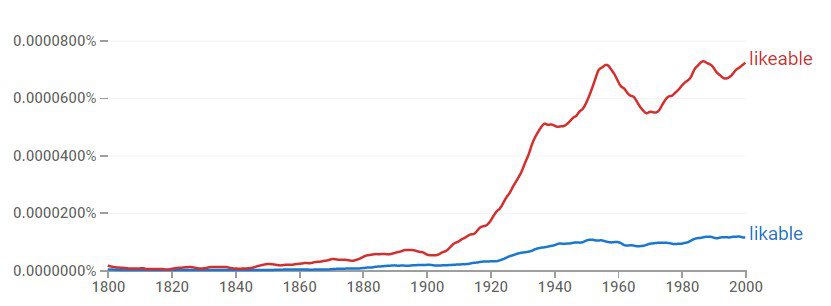Originally posted by vinteuil
View Post
Oxford Dictionary 3rd Edition - my bible for such things, has "like" and "likable"; one would deduce adjectival derivation "dislikable", not included. Note the additional "e" in the modern words. To me it just makes for confusion since it sounds the same when spoken. Stick to "dislikable", use "unlikable" for that which can be made not likable.




 )
)
Comment